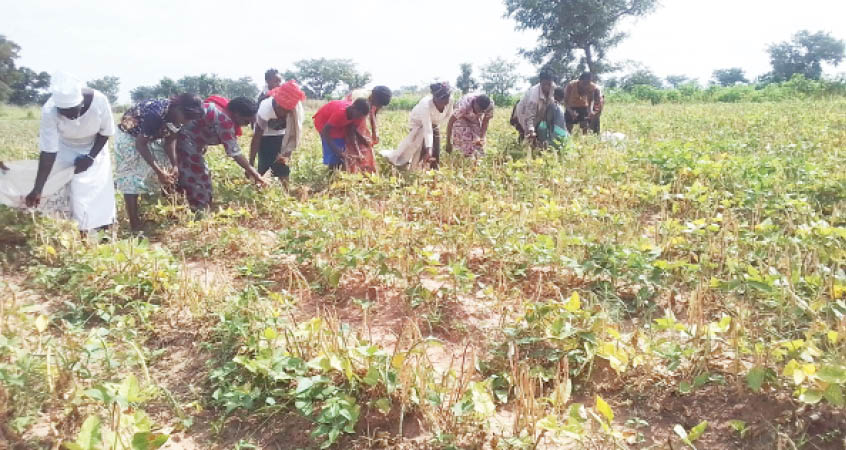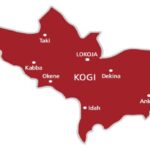Most residents of communities in Kogi State are yet to return to their various homes, from their refugee camps, due to the flood that ravaged the state this year and displaced them from their ancestral homes.
Our correspondent gathered that across the state, many farmers are bemoaning their loss in the wet season farming, and most of them are morally and financially weak to prepare for dry season farming.
A rice farmer in Onyedega, Uchola Andrew, said that most of the residents of Ibaji land are yet to return to their various homes, not to talk of starting up dry season farming.
“Those of us that have returned are thinking of how to put our houses in order. I went to my farm on Friday last week, the pain of destruction of my rice and yam farm was too much of a burden in my heart to do anything for dry season farming,” he said in a telephone interview.
FG to turn abattoir wastes to manures, liquid fertiliser for farmers
FG launches rice dev’t strategy to target 40m tons by 2030
Andrew’s pains reflected the plight of farmers across the state who lost their farms and crops to this year’s flooding.
A survey in the bank of River Niger in Lokoja metropolis where dry season farming supplements wet season produce and feeds the people, particularly with rice and vegetables, showed that everywhere was still a shadow of its former self.
A farmer, Mallam Ndagi Diche, who claimed to be a great farmer during the dry season, said majority of them have not started farming activities because issues arising from the flooding are still being settled by the flood victims.
“Some are still in the Internally displaced Camps (IDPs) because they lost their houses to flooding. Very few of us have started clearing land beside the river bank to kick off planting of crops, particularly vegetables and rice.
“Dry season farming used to supplement the produce from wet season farming in Lokoja markets, but with this low morale and lack of financial assistance, from anywhere, enough farm produce may not be available to feed the teeming populace.
“Except a miracle happens, price of food crops will skyrocket beyond the reach of average people in Lokoja,” he lamented.
Equally, the Kogi State chairperson of Small scale Women Farmers Of Nigeria (SWOFON), Hajia Safiya Yahaya, said her members were hit hard by this year’s flooding as their crops/ farms financed from loans, saving and cooperative contributions were lost in the process.
She said “We are yet to muster courage to embark on dry season farming. Our efforts in the rainy season farming yielded nothing tangible for us. We are all in debts and no assistance seems to be in sight.”
“It’s the wish of our members to get involved in dry season farming, but with obvious lack of the necessary incentives, it’s not feasible for now. We call for the assistance of the federal and state government, as well as organisations for our members who are already indebted heavily to banks and cooperative societies.”
However, the Kogi State government said it’s not taking the predicament of farmers for granted, saying that enough measures are being put in place to prepare farmers for dry season farming, so the state could have enough food before the wet season crops come out.
According to the permanent secretary of the Ministry of Agriculture, Alhaji Sanni Abdul Ganiyu Ahuni, heavy rainfall/flooding no doubt are detrimental to agricultural production as it damages the crops on the fields and drowns livestock.
He said to mitigate the effects of flooding and to encourage farmers to get involved in dry season farming to cushion the effect of the flood on wet season cropping, the state government has conducted a 2-day capacity building on the effects of floods on agricultural activities in the three senatorial districts of the state recently.
He noted the state government used the forum to advise the farmers, among others to strictly adhere to both national and international flood forecast; use agricultural insurance cooperation to insure their farm crops and livestock and use advisory services of extension officers, including the construction of infrastructure, like dams, dykes and dredging to minimise flooding.
The state government added that after post flooding workshop to prepare the farmers for dry farming, some farms inputs like bags, insecticides and storage facilities were distributed to members of All farmers Association of Nigeria (AFAN), Rice Farmers Association of Nigeria (RiFAN) and Tomato Farmers Development Association of Nigeria (TAFDAN).
Ahuni added that to encourage farmers to start up dry season farming in order to boost crops produce, a vista of service via FADAMA system has been opened for the farmers in the state, resulting in the distribution of 24 solar pumping machine to farmers recently.
He also said that a vista of opportunity of loan facilities is being processed via International Fund for Agriculture Development (IFAD) for the farmers to cushion the effect of the flooding and to facilitate the dry season and next year’s wet season farming.

 Join Daily Trust WhatsApp Community For Quick Access To News and Happenings Around You.
Join Daily Trust WhatsApp Community For Quick Access To News and Happenings Around You.

